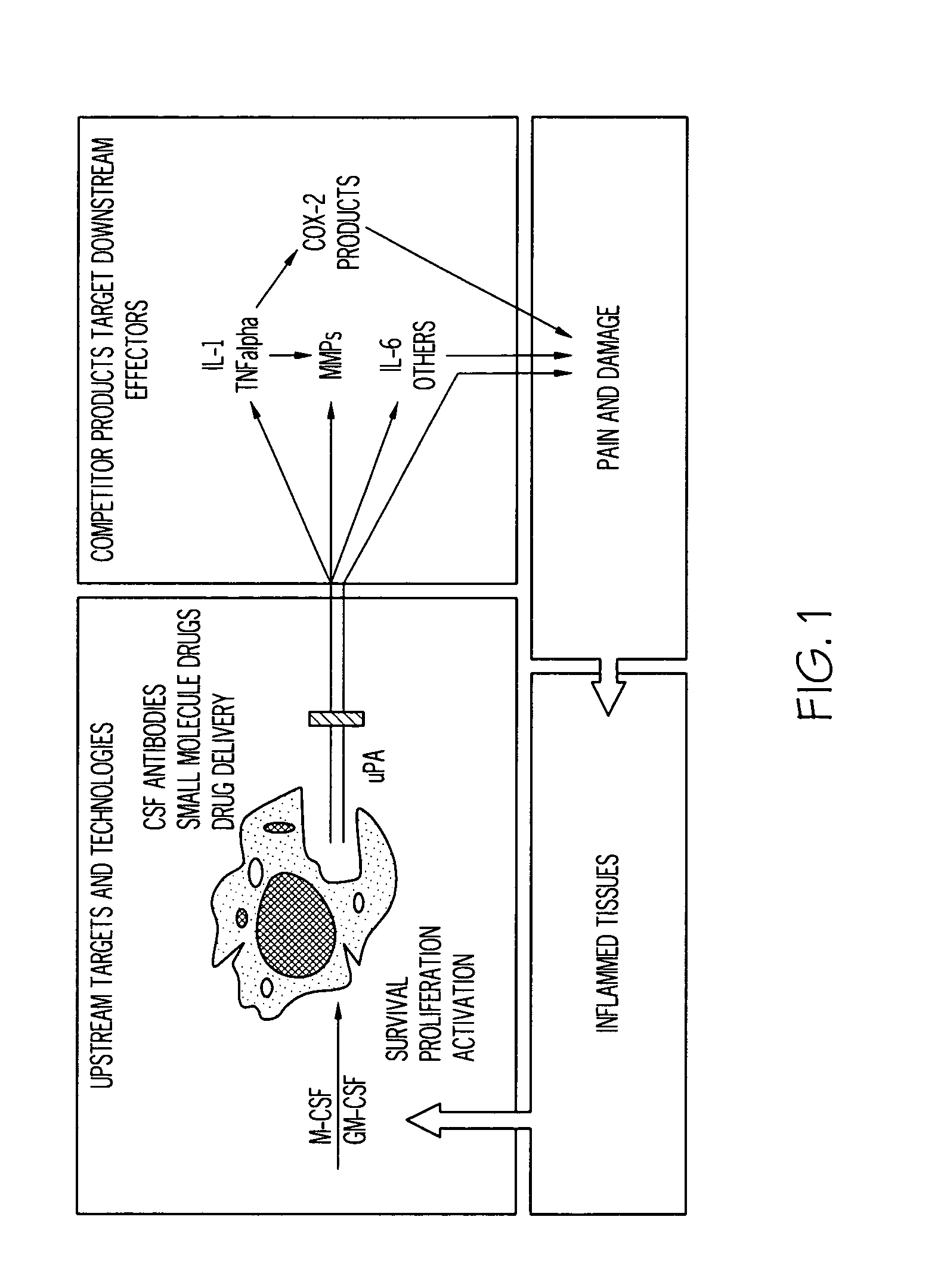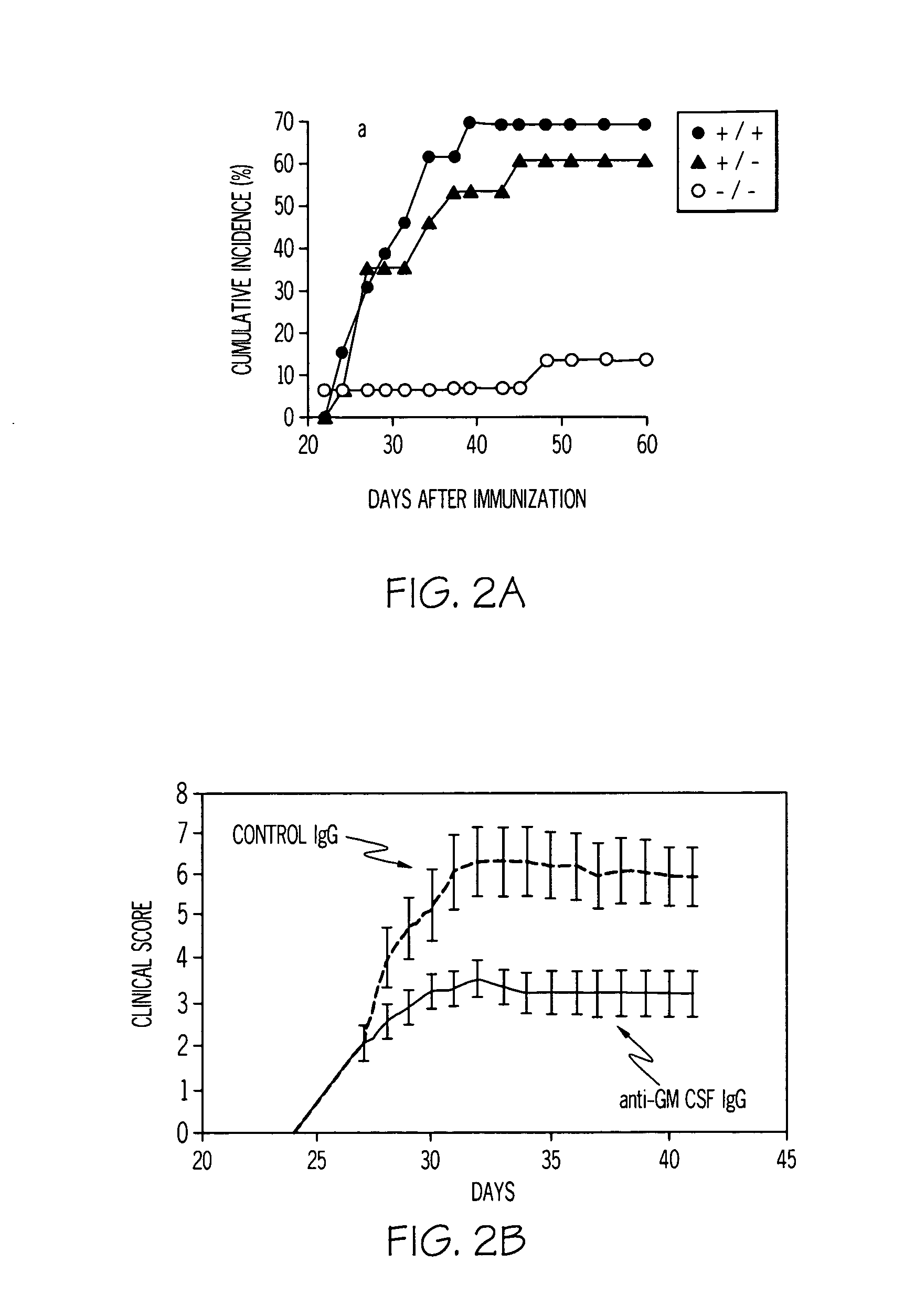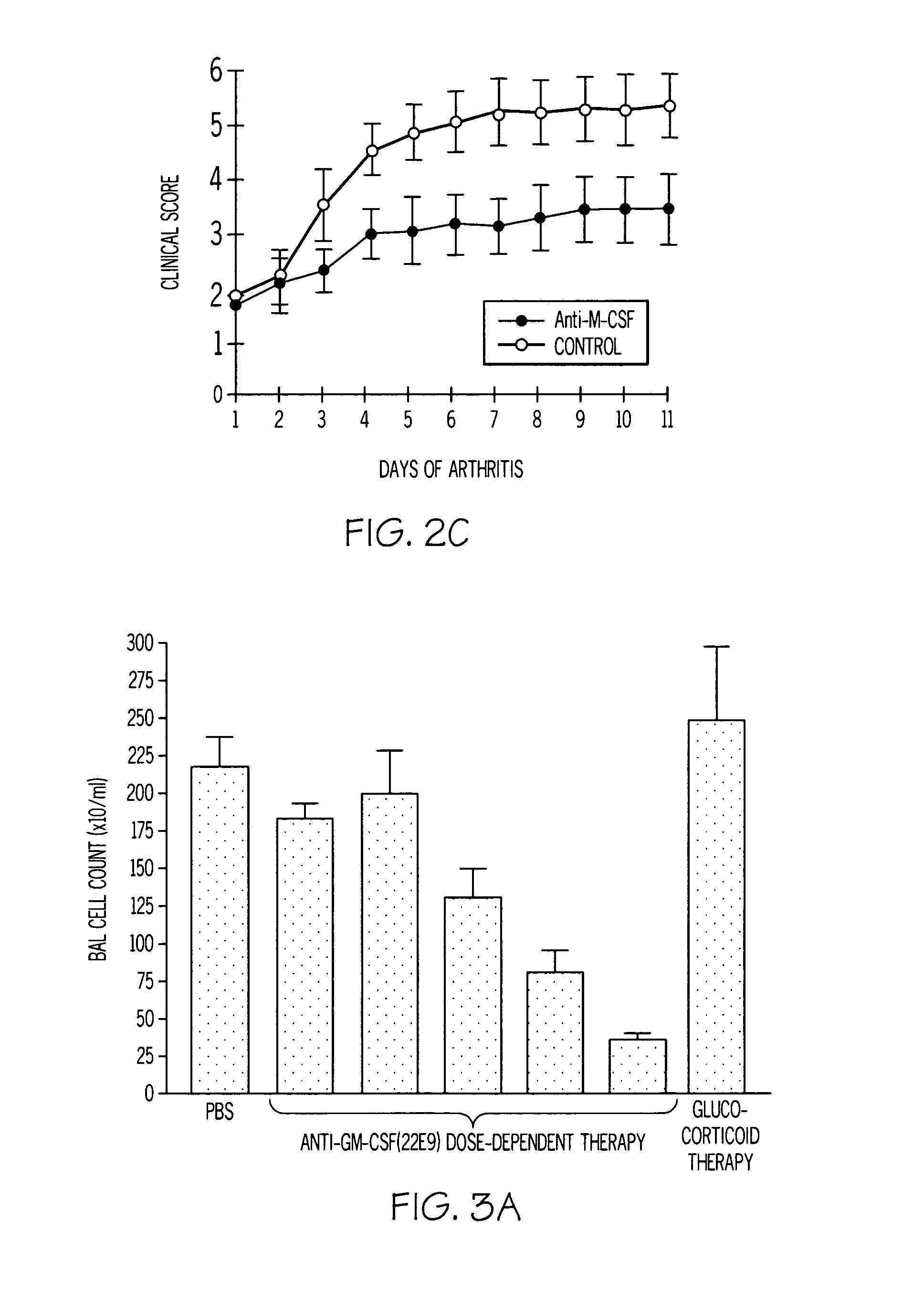Methods of ameliorating inflammatory disease using an uPA antagonist
a technology of inflammatory disease and upa, which is applied in the direction of snake antigen ingredients, antibody ingredients, instruments, etc., can solve the problems of undesirable modulation, alteration of normal cell growth, and adverse side effects of cytokines, so as to reduce the level of proliferation, activation, growth and/or survival, and improve the effect of inflammation
- Summary
- Abstract
- Description
- Claims
- Application Information
AI Technical Summary
Benefits of technology
Problems solved by technology
Method used
Image
Examples
example 1
Therapeutic Concept
[0098]The therapeutic concept upon which the present invention is based is shown FIG. 1 In essence, targeting colony-stimulating factors such as M-CSF and GM-CSF results in fewer and / or less active monocytes / macrophages available to produce inflammatory cytokines and other mediators such as u-PA.
example 2
M-CSF and GM-CSF in Inflammatory Diseases
[0099]Murine arthritis models and murine lung models are used to test the concept outlined in Example 1. From the arthritis models, it has been found that M-CSF and GM-CSF exacerbate disease. From both gene knockout and antibody blocking data, direct evidence has now been obtained by the inventors for their involvement in disease progression. In FIG. 2, it can be seen that GM-CSF− / − mice develop minor collagen-induced arthritis (CIA) disease in the occasional digit. Surprisingly, it was found that the humoral response (four isotypes) to collagen type II (CII) was not compromised. The results are shown in FIG. 2A.
[0100]A monoclonal antibody to GM-CSF prevents the onset of arthritis and suppresses established disease (FIG. 2B). The anti-GM-CSF mAb blocking in the CIA model provides more efficacy than the alleviation achieved by anti-TNF-.alpha. therapy in the same model. Similar results are observed using anti-M-CSF mAb blocking antibody (FIG. ...
example 3
M-CSF and GM-CSF in Inflammatory Lung Disease
[0101]In both a murine COPD model, as well as in a murine allergic (asthma) inflammation model, blocking mAbs to both CSFs suppresses disease. FIG. 3A shows that blocking antibody to GM-CSF can prevent endotoxin-induced lung neutrophilia (a COPD model) even when added after the stimulus (FIG. 3B). This provides support for the use of anti-GM-CSF therapy in the treatment of neutrophil-mediated inflammation in addition to macrophage-mediated inflammation and / or tissue damage transformation. FIG. 3C demonstrates that this antibody suppresses local macrophage proliferation in the same model. FIG. 3D demonstrates the suppression of TNF-a formation by anti-GM-CSF therapy. The favourable effect of anti-GM-CSF therapy compared to that found with a glucocorticoid is worth noting (FIG. 3A). The latter class of drugs have potent anti-inflammatory activity but COPD patients are notably refractory to them. The data in FIG. 3A are consistent with this ...
PUM
| Property | Measurement | Unit |
|---|---|---|
| volume | aaaaa | aaaaa |
| Tumour Necrosis Factor α | aaaaa | aaaaa |
| TNF-α | aaaaa | aaaaa |
Abstract
Description
Claims
Application Information
 Login to View More
Login to View More - R&D
- Intellectual Property
- Life Sciences
- Materials
- Tech Scout
- Unparalleled Data Quality
- Higher Quality Content
- 60% Fewer Hallucinations
Browse by: Latest US Patents, China's latest patents, Technical Efficacy Thesaurus, Application Domain, Technology Topic, Popular Technical Reports.
© 2025 PatSnap. All rights reserved.Legal|Privacy policy|Modern Slavery Act Transparency Statement|Sitemap|About US| Contact US: help@patsnap.com



